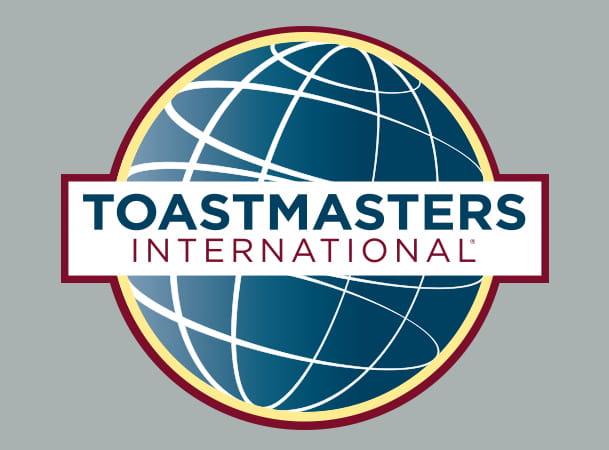
The Toastmaster of the Day keeps everything running smoothly. They manage the meeting, adhering to the agenda and ensuring that transitions between speakers are seamless and the session stays on time.
We often think of the role as a master of ceremonies, but it is much more than that. To be successful in the role you’ll need to pull from four different personas: the Event Planner (master organizer), the Tour Guide (gracious host), the Engaging Emcee (keeping the audience interested), and the Efficient Administrator (punctuality is pivotal). When you serve in this meeting role, you can draw on qualities from all four of these personas. You will benefit immensely from practicing and honing these diverse leadership skills.
The Toastmaster of the Day is a multifaceted and demanding role. Because you get to use several different skill sets as you prepare and lead the session, it’s an incredible opportunity to improve leadership skills across multiple dimensions.
Read on to learn more about these four leadership types.
The Event Planner
You may know the type—these people are ruthlessly organized, dogged on details, and utterly in control. They have lists of lists (like this one) and leave no box unchecked. That’s the Toastmaster as they prepare for the meeting, making sure the agenda is planned down to the minute and the meeting runs accordingly.
In this role, you may want to check with a club officer, such as Vice President Education, to make sure all the meeting roles are filled well in advance, or reach out to the meeting evaluators to see how the speakers would like to be introduced.
If structured and detailed is not your natural style, even better! It’s an opportunity to stretch yourself. Check all the details—especially those you might be tempted to gloss over. Are you familiar with all segments of the meeting agenda? Can you pronounce everyone’s name correctly? And how about speech titles—is Chasing the Bass about fishing or hip-hop? Touch base with the speaker so you’re 100% sure.
When the big day comes and the spotlight is on, it’s easy to forget the details. You’ll be glad your inner event planner left you so well prepared. Follow your agenda closely—and leave no box unchecked.
The Tour Guide
Toastmasters meetings—and clubs—each have their own culture. This can be intimidating, especially for guests who are not yet familiar with the jargon, norms, and unwritten rules. One of your main tasks as Toastmaster of the meeting is to guide everyone comfortably and happily through the session. Public speaking is nerve-racking enough; no one should worry about doing the wrong thing at the wrong time and feeling silly.
Lay out exactly how the meeting is structured, and let guests know what is expected of them. Of course, they are encouraged to take part in Table Topics®, but are they allowed to vote for Best Speaker? Should they give individual feedback to speakers when club members are asked to provide that? Anticipate their questions.
As Toastmaster of the Day, you speak more than anyone else at the meeting, and every utterance is an opportunity.
It’s not just guests who need answers, though. For instance, when our club started meeting in person again after the COVID-19 lockdown, we knew that some people would be worried about hygiene. The Toastmaster of the Day announced up front that it was a “contactless” meeting and he would forego the traditional handshake when welcoming a speaker to the stage. It was a graceful way to make sure that no one was put in a potentially uncomfortable situation.
Explain things clearly, set expectations, and eliminate ambiguity. Ease the way for members and guests to enjoy the journey.
The Engaging Emcee
Eager to practice connecting with an audience? Giving club speeches isn’t the only way—the Toastmaster of the Day does a lot of speaking, and a good one engages all listeners.
Once the Club President hands the meeting over to you, the stage is yours for a mini monologue. Depending on your personality type, this may be energizing or terrifying (or both), but use the opportunity to go outside of your comfort zone. Don’t be afraid to seize the spotlight as the emcee (also known as master of ceremonies) and put your personal stamp on the role.
The opening is not your only chance to engage the audience though. As Toastmaster of the Day, you speak more than anyone else at the meeting, and every utterance is an opportunity. Come up with a subtle theme for the meeting and sprinkle it throughout the session, whether you’re thanking the speakers after they’ve finished or transitioning to the next phase of the meeting. Anyone can read from a printout of the agenda; your job is to add some pizzazz!
As Toastmaster, you will be the most visible representative of the club, so don’t be surprised if guests approach you after the meeting with questions. They might be asking for an autograph, but more likely, they’re wondering about the club. Brush up on the membership process so you can answer basic questions, and make sure you know who the Vice President Membership is in case you need to defer to the expert.
The Efficient Administrator
From the time the meeting starts, the Toastmaster is a taskmaster (albeit a friendly one), keeping everyone on track and moving forward. Meetings are scheduled down to the minute, and your job is to make sure you end on time.
That doesn’t mean it will be easy. No matter how scrupulously you’ve prepared, something will always go wrong. When the unexpected occurs, assess the situation and determine the best course of action. Is the second evaluator stuck in traffic? Shuffle her speaker to the end to buy a little time. Has the red timing signal been showing for more than a minute? Cut in and point out that Table Topics are short impromptu speeches and that all attendees would like a chance to participate.
For the duration of the meeting, you are the ultimate authority. This may be daunting, depending on how much experience you have, but that’s what Toastmasters is all about—putting yourself in tough situations and proving to yourself that you can soldier through them.
Act decisively, lead with authority, and—above all—stick to the agenda.
Putting It All Together
Because the duties are so varied, serving as Toastmaster of the Day is one of the most valuable ways to level up your leadership. You get to organize, guide, engage, and command, all in the space of one session.
Some of these leadership styles may come naturally, but others will not—providing a great excuse to get out of your comfort zone. If you’re more of an Event Planner, plan to pull from the Engaging Emcee. If you’re more of an Efficient Administrator, decide to guide your group graciously.
Determine which of these personas you want to work on, and use this opportunity to improve your skills. When the gavel drops at the end of the meeting, you’ll have mastered more than just the ceremony.
Have you ever wondered what happens at a Toastmasters club meeting? Watch this video to find out, and share it with friends, family, or colleagues interested in improving their speaking and leadership skills.
Megan Preston Meyer is the author of Max Entropy & the Avalanche, as well as Firebrand: A Corporate Elements Mystery and the Supply Jane and Fifo Adventures. She lives in Switzerland and is a regular contributor to the Toastmaster magazine. Learn more at entropycottage.com/max.
Related Articles

Personal Growth
Your First Time as Toastmaster of the Meeting

Club Experience



 Previous
Previous
 Leading an Online Meeting
Leading an Online Meeting
 Previous Article
Previous Article